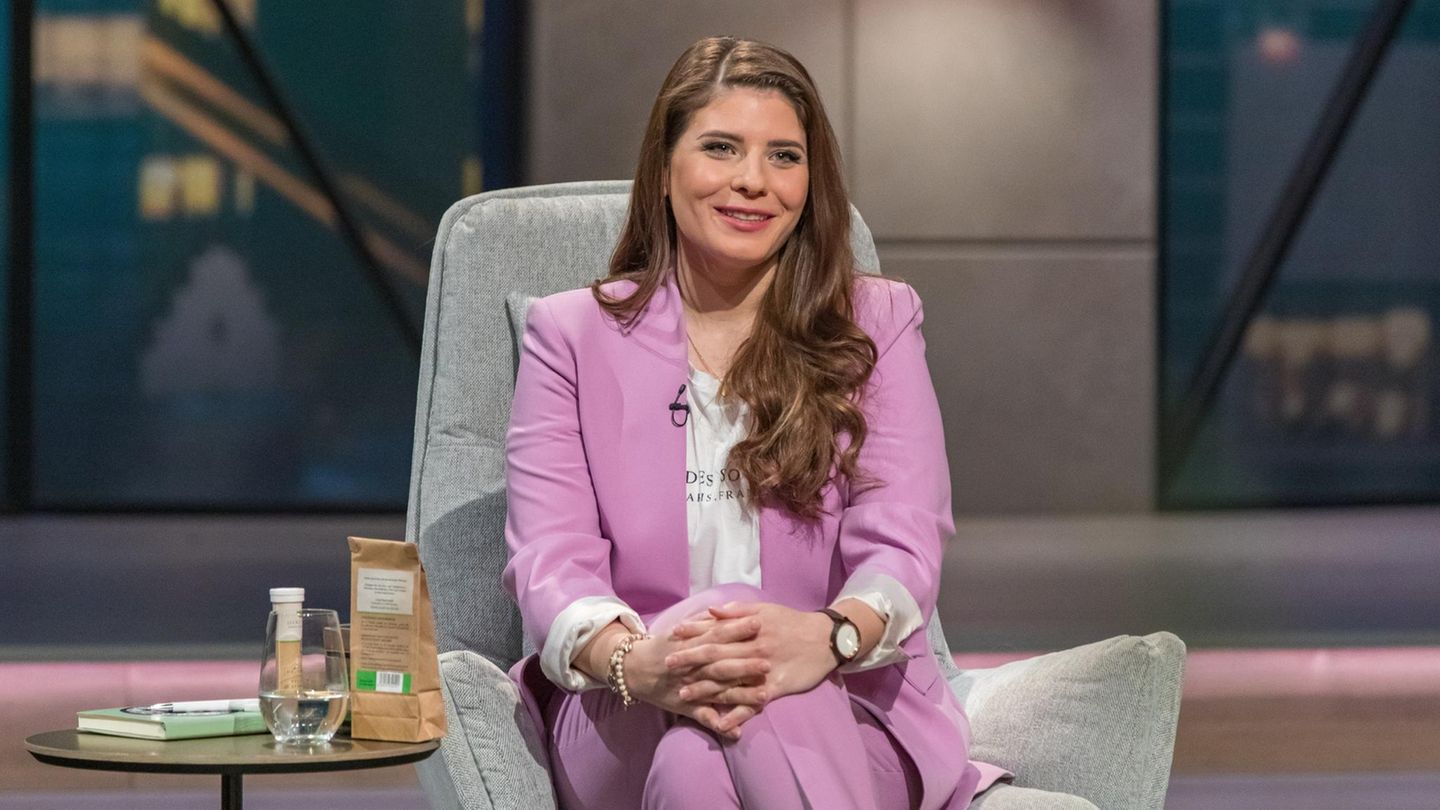Sarna Röser is 34 years old, the designated successor at the head of a family business and can now be seen as a guest investor in the “Lion’s Den”. In the interview she talks about her understanding of entrepreneurship, her relationship with her father and the activists of Fridays For Future.
At just 34, Sarna Röser has already played a remarkable number of roles. As the daughter of a medium-sized civil engineering contractor, she is firmly planned as the next boss of the family business. But she also founded a start-up herself and is on the road as national chairwoman of the “Young Entrepreneurs” association. She also sits on the Fielmann supervisory board and is an advisory board member at Deutsche Bank.
She has also gained some experience as an investor in the start-up scene. In the start-up show “Die Höhle der Löwen” she can be seen on Monday, April 25th as a guest investor on the Löwenstuhl. High time to get to know the busy doer better.
Ms. Röser, we have two years of pandemic behind us, now a war with all its consequences and a climate crisis anyway. How much fun is it actually being an entrepreneur if you just stumble from one crisis to the next?
These are tough times. Our family business will be 100 years old next year and I’m thinking a lot about how I, as the successor, will have to restructure our company in the future so that we can continue to exist in the next 20, 30, 50 years. But I’m passionate about entrepreneurship, I want to be my own boss, put my own ideas into practice and inspire other people. So I’m not complaining.
Her family business, Karl Röser & Sohn, operates a cement pipe and concrete plant in Mundelsheim in Baden-Württemberg. This is classic industrial middle class. What is currently the biggest challenge?
Energy prices and supply chains are very acute. For example, our supplier of rubber seals lacks raw materials such as carbon black, which usually comes from Ukraine or Russia. At the moment we are checking from week to week where we can get what from and at what prices, including transport and our raw materials such as cement and sand have become extremely expensive. In addition, we are concerned about the shortage of skilled workers in the entire construction industry – we lack workers, truck drivers, skilled workers. And of course sustainability is a huge topic: How do we manage to change production processes in order to become climate-neutral? For me, as a family entrepreneur of the next generation, this is an existential question.
Her father Jürgen Röser is currently running the company in the third generation. When did you first realize that you were born into an entrepreneurial family and that you might one day take over the shop?
I can well remember how my father used to take me and my younger sister to Christmas parties and summer festivals when we were children. From an early age, the company was always present, even at home when Dad told us at the dinner table what was going on at work today. I did my first student internship in our accounting department. And as a teenager, I slowly and seriously thought about the fact that I could get into it one day.
Didn’t you want to be something completely different from your father?
Yes, there were also phases in which I wanted to become a lawyer or go to the USA and work in a start-up. But at the age of 18 or 19, I realized that it was a great opportunity to continue the family business and that it was very important to me. There are employees here who have been with the company longer than I am old. You know each other, you often know their children, that’s different from working in a corporation, where you’re often just a number.
You are now working as the designated successor in your group of companies, but your father is still firmly in the saddle as boss and can decide everything. How great is the potential for conflict there?
Of course there is potential for conflict. My father knows my little tics and I know his – everyone has them. But fortunately I get along very well with my parents and my sister. We like to work together and still meet up at the weekend for a barbecue or go on vacation together. I don’t need a clear cut between work and private life.
But every now and then it certainly crashes. Tell me about a point of contention between father and daughter.
OK. In our company it starts at 6 a.m. and my father is a pretty early bird. I, on the other hand, tend to be the type who starts later and is productive later. At first he couldn’t understand that I have a different working rhythm. Conversely, I also had to learn that you don’t always have to reinvent the wheel, but that certain things are done that way for a good reason.
Within the group of companies, you are in charge of the investment company with which you invest in start-ups. In this role you are now appearing as a guest investor in the “Lion’s Den”. What kind of companies are you investing in?
In recent years, we have mainly invested in tech start-ups. One example that is developing very well is the online language school Lingoda from Berlin. Other investments included the rating platform Proven Expert and the vegan food start-up Another Milk. I always have to be enthusiastic about the idea and the founding team. Three factors are important for the idea: innovation, scalability and relevance.
Is there anything that female founders can do better than founders?
So first of all: Yes, we need more female founders and I would be happy if we could motivate more women to be brave and try things out, which is what I am committed to. On the other hand, I don’t want to make a big distinction between founders. For me, it’s about him or her bite, a vision, a great idea.
What do you think of quotas for women in company management?
I’m against women’s quotas, because I don’t think they do much. We need to get to the why. Why are fewer women founding a company? Why are there fewer women in management positions? Why are fewer women taking over family businesses? When I talk to friends, I notice that the childcare situation is still not good in many places. There is still a lack of hundreds of thousands of daycare places in Germany, especially for children under the age of three. The state has to create the framework conditions.
Can gender-sensitive language make a contribution?
I don’t gender myself because I don’t believe that the number of women in management positions and female founders will increase as a result of the language. As I said, this requires a good infrastructure, but also good networks and more visibility of real role models such as good female entrepreneurs.
Are you not only an entrepreneur and investor, but also chairwoman of the association “Young Entrepreneurs”? Apart from more childcare options, what are your key demands on politicians?
We need a turbo when it comes to digitization. Why is it not possible for me to found a company digitally in a short time? Why are we still not digital in administration? When will we get reasonable broadband expansion across the board? These issues need to be addressed quickly. Politicians could also do more to counter the shortage of skilled workers: many people in their early 60s are still healthy and motivated and would be interested in working longer. The last government sent out the wrong signals in terms of pension policy, for example with the pension at 63, which is often claimed by well-trained professionals. As a medium-sized company, we would be happy if older employees stayed in the job longer and would kiss them on the hand. And above all, of course, we need a clever and efficient climate and economic policy.
The voice of the young generation when it comes to climate protection are the activists from Fridays for Future. As a young entrepreneur from the climate-damaging concrete industry, how do you feel about the movement?
I think it’s good that young people are interested in and involved in politics. In terms of content, I don’t always have the same opinion, because some things are too ideologically charged for me. We also need to talk about solutions. We all understood today that we have to change. Now it’s about how we manage to become climate-neutral without endangering jobs and prosperity. You can’t lump all companies together and pillory them as the bad guys.
Source: Stern
Jane Stock is a technology author, who has written for 24 Hours World. She writes about the latest in technology news and trends, and is always on the lookout for new and innovative ways to improve his audience’s experience.




